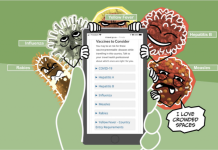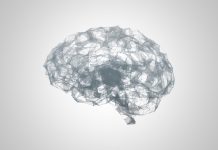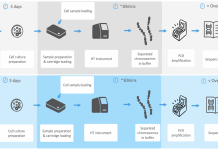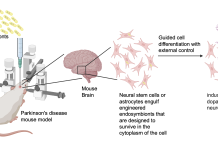Open Access Government produces compelling and informative news, publications, eBooks, and academic research articles for the public and private sector looking at health, diseases & conditions, workplace, research & innovation, digital transformation, government policy, environment, agriculture, energy, transport and more.
Home 2025
Archives
Predicting cancer risk with computational biology
Andrew Teschendorff, Professor at the Chinese Academy of Sciences, is developing computational systems-biological tools to identify cells at risk of turning cancerous.
The neuroscience of metabolism
Given that the brain can detect and respond to changing levels of body fat and blood sugar, Michael W. Schwartz, MD from the University of Washington Medicine Diabetes Institute, explains how the brain can be targeted to treat obesity and diabetes.
The microbiome and aging: Unlocking new frontiers in healthy longevity
Research conducted by the USF Microbiomes Institute and the MiaGB Consortium is uncovering the significant link between microbial communities and host biology. This understanding could lead to new therapies for age-related conditions. Shalini Jain, Christian Brechot, and Hariom Yadav provide further insights.
Rethinking the reproductive clock: Can NAD+ preserve fertility?
Recent research indicates that the compound NAD+ offers a promising solution to support fertility and reproductive longevity.
New strategies for an old problem – Oral vaccines research
Despite their advantages, oral vaccines encounter several challenges. Professor Elizabeth Norton from Tulane University discusses how her team is addressing these issues and their research on developing and testing dmLT and saponin combination adjuvants.
Teen relevant and open access health information for building vaccine confidence
With the abundance of health information about vaccines online, there is a need for an open educational resource (OER) that empowers youth to understand the importance of vaccines and make informed medical choices.
Computational psychiatry and the opioid crisis: A deep dive
In this interview, we speak with Dr. Bo Cao, a leading expert in computational psychiatry at the University of Alberta, Canada. Dr. Cao discusses how advanced data analysis and machine learning are transforming our approach to the opioid crisis and mental health care, offering new hope in addressing one of North America’s most pressing public health challenges.
Single chromosome sequencing to obtain genetic phase (haplotyping)
Brian Tait, Chief Scientific Officer at Haplomic Technologies Pty Ltd, examines single chromosome sequencing to obtain genetic phase (haplotyping).
The hidden dangers of breastfeeding misconceptions: A deep dive
In the exclusive interview, Dr. Christie del Castillo-Hegyi, co-founder of the Fed is Best Foundation, sheds light on breastfeeding misconceptions and their devastating impact.
The European Cancer Pulse: From data intelligence to policy action
Norbert Couespel 1 and Mark Lawler 1, 2 highlight the European Cancer Pulse, a critical tool in tracking cancer inequalities and influencing cancer policy in Europe.
Predicting cochlear implant performance: Moving beyond single biomarkers and leveraging artificial intelligence
Matthew Shew, Amit Walia, and Craig A. Buchman highlight that the significant variability in speech perception among cochlear implant users can be addressed by using a multi- faceted approach that incorporates emerging technologies like machine learning and artificial intelligence to improve outcome prediction models.
The future of AVS, dizziness, and vertigo in emergency departments Part V: Rise of...
In the final article of this five-part series, Dr Millie Nakatsuka discusses emerging technologies relevant to acute vestibular syndrome (AVS) in the emergency healthcare setting.
Neuroengineering with engineered endosymbionts
Christopher H. Contag and Ahmed A. Zarea from Michigan State University’s Institute for Quantitative Health Science and Engineering explore therapeutic approaches to neurodegenerative diseases using a novel strategy based on engineered endosymbionts systems that could revolutionize patient care.
CRISPR/ Diagnostics: A portable lab for everyone
Professor Kevin J. Zwezdaryk and Chandler H. Monk discuss CRISPR and diagnostics, focusing on the development of a portable lab accessible to everyone.
How new programs help veterans reconnect after service
Dr William T. Howe from Texas Tech University outlines recent developments in reintegration and communication among United States military veterans.
Cultural adaptation of the iSupport for Dementia psychoeducation programme for care partners
This article examines the cultural adaptation of iSupport for Dementia, an online platform developed by the WHO for dementia caregivers. It emphasises research findings that demonstrate the program’s effectiveness and benefits for Chinese care partners.
Living with rare genetic disorders: Challenges of EPP and XLP
Kirstine Juhl Belongie discusses the impact, symptoms, and possible treatments related to EPP and XLP, two debilitating disorders that cause extreme pain following exposure to sunlight.
The role of host condition and environment on infection outcome
Brian P. Lazzaro from Cornell University discusses his research on the factors influencing immune response and infection outcome, drawing on powerful experimental systems, such as Drosophila melanogaster as a model host, to gain a deeper understanding of foundational biological processes.
Exposomics: A shift in biomedical research with potential to improve human health
Recent advances in exposomics offer an exciting opportunity to comprehensively catalog human exposures and link them to biological responses determining health and disease. Pamela J. Lein, Ph.D. from the University of California, tells us more.
Five tips to implement self-compassion for healthcare workers
Self-compassion is not a cure-all for systemic challenges within the health system, but it can enhance resilience, social support, and self-efficacy among healthcare workers, ultimately improving their quality of life in the workforce.

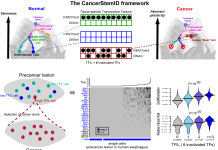



![New strategies for an old problem – Oral vaccines research Figure 1. Systemic immune responses elicited by oral dmLT-saponin combinations compared to injected vaccines (A) Cryo-electron microscopy (cryo-EM) image of the dmLT and saponin formulation demonstrating the formation of acid-stable micelle particles upon the addition of saponin to dmLT. (B) Preclinical evaluation of systemic serum IgG and IgA antibody responses following prime/boost vaccination. Antibody levels against the microbial protein antigen included in the vaccination were assessed two weeks post-final vaccination in immunized mice. Groups were stratified by vaccination route (intramuscular [IM] or sublingual [SL]) and adjuvant formulation (dmLT [D] and/or saponin [S]). Comparisons with unvaccinated controls (white bars) are shown. Statistical significance between groups is indicated (*P < 0.05), with the SL D+S group achieving the best IgG and IgA responses to vaccine antigen.](https://www.openaccessgovernment.org/wp-content/uploads/2025/01/Figure-01-218x150.jpg)
